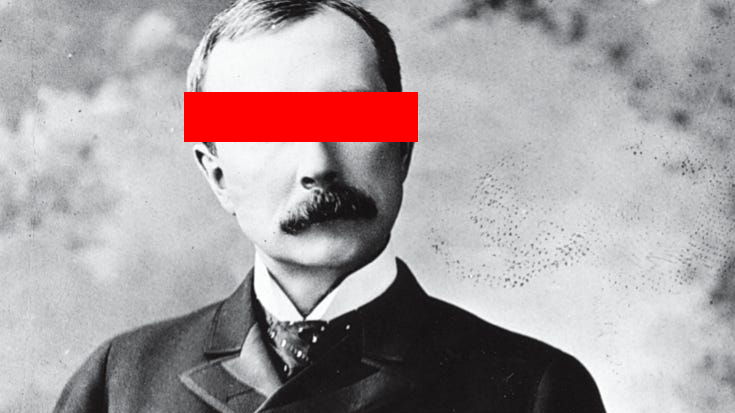What Are The Big 5 Personality Traits?
The Big 5 Personality Traits can be thought of as an updated and improved version of the Myers–Briggs Type Indicator.

Background
- The Big 5 Personality Traits can be thought of as an updated and improved version of the Myers–Briggs Type Indicator.
- The Myers–Briggs Type Indicator is radically out of date. It was made in the 1930s, before the modern understanding of biology, neuroscience, computational statistics, and data analysis. It also lacks trait neuroticism (negative emotion), which is a major flaw.
- The Big Five personality test is the best personality measure.
- All other personality tests are incomplete variations of the Big Five personality test.
- Personality traits are highly genetically influenced.
- From a Darwinian perspective, the way that organisms adapt to a complex world is by having all kinds of variations. That’s why we have personality variations. Some percentage of people will have the best personality traits for any given time and location.
- Similarity in personality is preferable for romantic partners. Unless one is high in neuroticism, then it’s better for the other to be low in neuroticism.
- Big Five personality test results can be more accurate if you get someone who knows you to take a second test and answer the questions as if they were you. Then compare their results with your original results.
- For hiring, you want employees high in (1) general cognitive ability: openness, intellect, and IQ; and (2) conscientiousness (for managers).
The Big 5 Personality Traits

Trait Extraversion
Extraversion is the tendency to experience positive emotion. It is composed of two aspects: assertiveness and enthusiasm.
- Extraverts tend to value the present more than the future. Introverts tend to value the future more than the present.
- The biggest problem with extraverts is that they are impulsive and gamble more. They should try to delay gratification and think about the future more.
- Introverts should find a career that is tailored to their strengths. They can also increase their extraversion to an extent by consciously working on their social skills.
Trait Neuroticism
Neuroticism is also known as negative emotion. It is composed of two aspects: volatility and withdrawal.
- Anxiety exists because, evolutionarily, it’s better to be anxious than injured or dead.
- Both anxiety and depression can be fixed with self-improvement. If clients still have anxiety or depression after their life is structurally sound, SSRIs can help.
- Having a plan, developing a routine and habits, and incrementally exposing yourself to your fears can cure anxiety. Write an autobiography to understand your past.
- Try to eat a food high in fat and protein when you feel your mood changing due to hunger.
Trait Agreeableness
Agreeableness is composed of two aspects: compassion and politeness.
- Someone who is agreeable will value others’ interests more than their own, while the opposite is true of someone who is disagreeable.
- The most common clinical patient has anxiety or depression. The second most common is someone who’s too agreeable and needs assertiveness training.
- Extreme disagreeableness is the best predictor of violence and incarceration.Both incarceration and extreme disagreeableness are significantly more common in men.
- While the distribution of the trait in each sex is not too far apart in the middle, the difference becomes apparent at the tail ends of the normal distribution model. Almost all of the most disagreeable people are men, and almost all of the most agreeable people are women.
- Extremely disagreeable and aggressive people should get into competitive sports. They should also try to listen more and be more diplomatic.
- The positive side of people low in politeness is that they’re blunt—they can say things that other people wouldn’t. Comedians often have to be low in politeness.
Trait Conscientiousness
Conscientiousness is composed of two aspects: industriousness and orderliness.
- Conscientiousness is one of the best predictors of financial and career success, second only to IQ.
- It’s likely that trait consciousness is associated with the ability to delay gratification—to sacrifice today for a better tomorrow.
- Industriousness is (possibly) associated with guilt and shame. Industrious people may work hard because they don’t want to be useless. Not working hard is not morally acceptable to them.
- Highly industrious people can work too hard. Often, if they take more days off, their productivity improves.
- The downsides of extreme orderliness are anorexia and OCD. Hitler was extremely high in orderliness.
- Extremely conscientious people get extremely judgemental and they attach morality to their judgment. They should learn to be more understanding of others.
Trait Openness to Experience
Openness to experience is composed of two aspects: openness and intellect.
- People high in openness should become entrepreneurs and visionary founders.
- Openness is associated with creativity and interest in aesthetics.
- Intellect is associated with intelligence and interest in ideas.
- People low in openness or intellect should consume more poetry, paintings, music, movies, books, and courses.



Comments ()